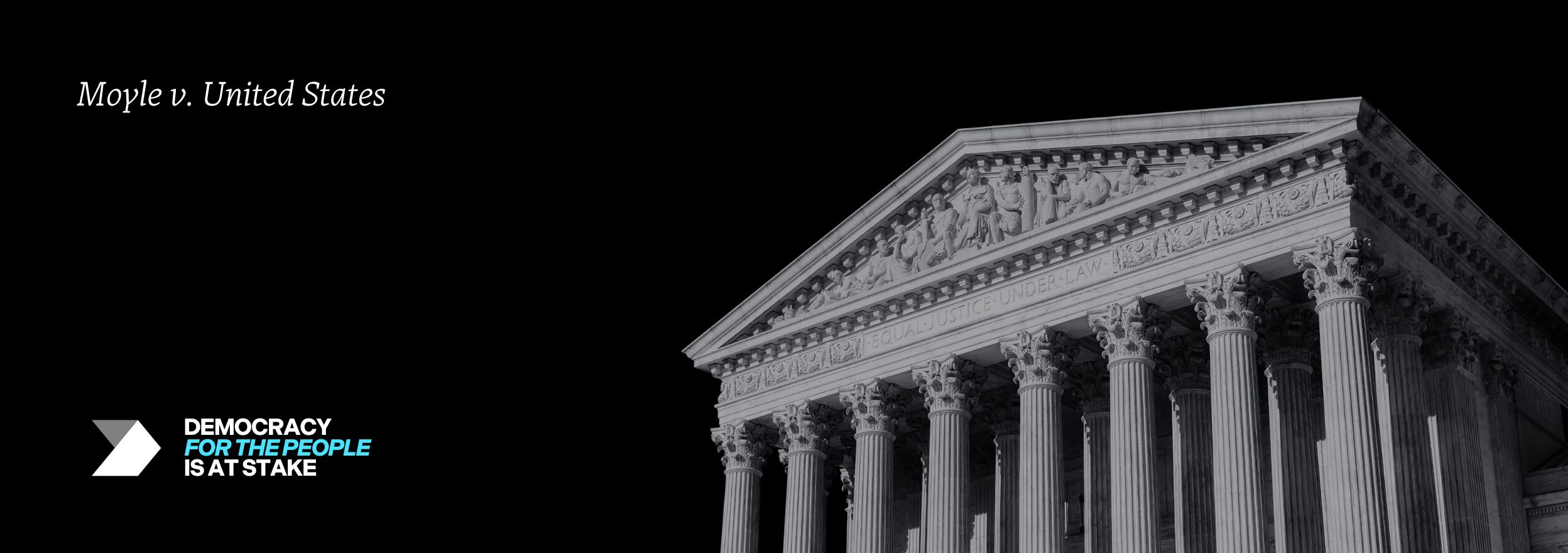
For nearly four decades, a law called the Emergency Medical Treatment & Labor Act (EMTALA) has provided the foundation for the emergency care safety net and has been supported by lawmakers of diverse ideological perspectives. This law requires that patients receive stabilizing medical care in emergency situations regardless of their ability to pay. The American public trusts physicians to provide emergency care consistent with federal law and medical guidelines. Despite this, a range of state efforts would criminalize doctors who provide abortion even in such emergency circumstances, leaving physicians and their patients in an untenable and unsafe position.
The Biden Administration challenged one such effort – Idaho’s abortion ban – in federal court, arguing that its lack of a health exception unlawfully conflicts with these federal protections, and on August 26, 2022, a federal court in Idaho stopped Idaho’s abortion law to the extent it conflicts with the federal law. The court agreed with the medical community that “Idaho’s criminal abortion law will undoubtedly deter physicians from providing abortions in some emergency situations,” subjecting “women in medical crisis to periods of serious physical and emotional trauma as they wait to get nearer and nearer to death.” Since then, the Supreme Court has lifted the pause on the law and allowed it to go into effect.
SCOTUS RULING
On June 27, 2024, the U.S. Supreme Court issued its decision in this case, reinstating a lower court ruling allowing hospitals in the state to perform emergency abortions when the termination of a pregnancy is needed to save a woman’s health. That ruling will remain in effect, for now, while the litigation continues.
Read Democracy Forward’s press release reacting to this decision here
WHAT’S AT STAKE
Anti-abortion extremists want to restrict access to reproductive health care and ban abortion nationwide at all costs, from banning abortion to eliminating access to medication abortion to gutting rights to emergency care. And, they are criminalizing doctors and other health care providers and personnel who help pregnant people in emergency situations.
A bad decision in this case could mean that states can deny pregnant people health- and life-saving emergency care when they urgently need it. State laws that restrict access to abortion, even in emergency situations, put doctors in an untenable position where they may feel forced to turn away a patient in urgent need of care against their expert medical judgment in order to comply with the law.
WHO IS INVOLVED
People Defending Progress:
A broad coalition of amici filed 27 briefs with the U.S. Supreme Court in support of the federal government urging continued access to emergency abortion care.
Provider and Public Health Perspective:
- Democracy Forward represented the nation’s leading professional medical organizations, led by the American College of Obstetricians and Gynecologists, American College of Emergency Physicians, and American Medical Association
- Physicians for Reproductive Health
- Physicians for Human Rights
- Dr. Caitlin Bernard, Dr. Lauren Miller, Dr. Leilah Zahedi-Spung, and Dr. Nikki Zite
- Idaho Coalition for Safe Healthcare
- St. Luke’s Health System, Ltd.
- The American Hospital Association, American Association of Medical Colleges, and America’s Essential Hospitals
- A coalition of public health organizations, including the American Public Health Association, the Robert Wood Johnson Foundation, the Network for Public Health Law, and the American Medical Women’s Association, as well as a group of 133 distinguished deans and professors of disciplines spanning the health professions, public health, and health law and policy
Harms to Patients & Impact on Communities:
- National Women’s Law Center, In Our Own Voice: National Black Women’s Reproductive Justice Agenda, National Asian Pacific American Women’s Forum, the National Latina Institute for Reproductive Justice, and 98 other organizations
- The Center for Reproductive Rights
- Leading disability rights organizations and scholars
- Sanctuary for Families
- The National Network of Abortion Funds (NNAF)
- Chicago Abortion Fund’s (CAF)
- The Global Justice Center, Amnesty International, Human Rights Watch, and the Ipas Impact Network
Federal, State, and Local Governments and Officials:
- 258 Members of Congress
- Former officials at HHS
- California and New York
- The County of Santa Clara
- Washtenaw County Prosecuting Attorney Eli Savit
Legal Scholars and Experts:
Business Perspective:
Extremists Attacking Democracy:
Idaho has hired the same legal organization, the Alliance Defending Freedom, to defend their abortion ban that was recently at the Supreme Court arguing against medication abortion, and was counsel to the two individuals in Arizona working to revive that state’s near-total abortion ban. These same extremists are also pushing legal strategies that threaten nationwide access to fertility care like IVF, birth control access, as well as abortion care. And they are in favor of criminalizing doctors and other health care providers and personnel who help pregnant people in emergencies.